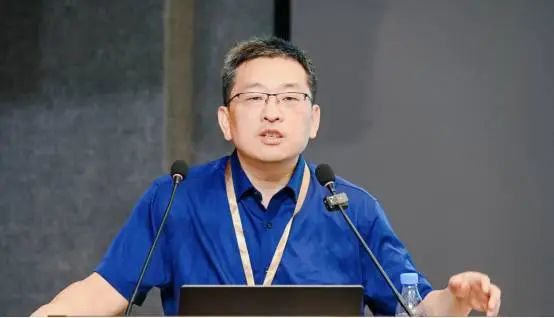中希文明互鉴中心短期课程(全英文课程)
李勇:儒家比较政治哲学专题
课程安排
01
主题:Justification of Moral Values in Comparative Philosophy: history, text and ideals?
时间:10月31日(星期四)19:00
地点:中希文明互鉴中心学术报告厅
02
主题:Confucian Inequality: Moral or Political?
时间:11月1日(星期五)9:00
地点:中希文明互鉴中心学术报告厅
03
主题:Between Confucianism and Democracy
时间:11月1日(星期五)14:30
地点:中希文明互鉴中心学术报告厅
04
主题:Confucianism and Perfectionism
时间:11月4日(星期一)19:00
地点:中希文明互鉴中心学术报告厅
课程内容简介
1.Justification of Moral Values in Comparative Philosophy: history, text and ideals?
In the past decade, there have been various debates in the Confucian comparative political philosophy, involving issues of whether Confucianism supports democracy, political equality, human rights, and global justice. Many philosophers mainly justify their positions based on moral ideals. In contrast, scholars of history of philosophy claim that these philosophical discussions are superficial, without a detailed analysis of the classical texts, or only focusing on a few classical texts from the Pre-Qin period. However, historians often believe that the perspectives either from philosophy or history of philosophy tend to be detached from historical facts and are a form of imagination and fabrication. Furthermore, similar disputes over history, texts and ideals can be found in a wide range of philosophical discussions. Is there a comprehensive defense of moral concepts that can achieve a balance among history, texts and concepts? Or are history, text, and concepts subject to different types of justifications?
2.Confucian Inequality: Moral or Political?
Some contemporary Confucians argue against liberal democracy by using the idea of moral inequality between the great men and the petty men, which is a core commitment of Confucian tradition. The great men are virtuous and capable of knowing how to promote the greater good for the common people. In contrast, the petty men are not virtuous and merely care for their own personal interests. Those Confucians argue that the moral inequality between the greater men and the petty men can justify political inequality between them, given a service conception of political legitimacy that the primary end of the state is to promote people’s material and moral well-being, rather than their mere autonomy. This talk will present and evaluate various objections from Confucian democrats against the above moral inequality argument.
3.Between Confucianism and Democracy
How to modernize Confucianism is one major mission for contemporary Confucians. Making Confucianism relevant in political domain is a way to carry out this mission. Whether Confucianism is compatible with democracy is one of those issues in political domain. On this particular issue, contemporary Confucian scholars are roughly divided into two groups. The first group is identified as Confucian meritocrats. The second group is identified as Confucian democrats. One of the major differences consist in their stance on the issue of political equality. Confucian meritocrats do not accept unconditional political equality. They may accept equality in certain forms. However, regarding political rights and power, Confucian meritocrats do not think that there should be unconditional equality. In comparison, Confucian democrats think that there should be unconditional equality, including political equality and that Confucians do or should support political equality. This talk will clarify the above disputes.
4.Confucianism and Perfectionism
Confucians are perceived as valuing the ultimate importance of living a moral life. The idea of making people virtuous or the “ultimate perfection” (至善) is perceived as one of the key features of Confucian political morality. Many contemporary Confucian political philosophers have also recognized this as the defining feature of Confucian political ideals. For example, Joseph Chan understands Confucianism as a kind of political perfectionism. Sungmoon Kim argues for Confucian democratic perfectionism “in the sense of permitting the state’s nonneutral commitment to a constellation of Confucian values that citizens in East Asia still broadly share and practice despite their diverse private moral values and/or religious faiths”. In the first section of this talk, I will first discuss main arguments for and against perfectionism. In the second section, I will present the main arguments for and against Chan’s Confucian perfectionism. Then in the third section, I will present the main arguments for and against Kim’s Confucian perfectionism. In the last section, I will argue that there is so reasonable solution to the dilemmas that face Confucian perfectionism.

主讲人简介:李勇,哲学博士,武汉大学哲学学院副院长、教授、博士生导师,武汉大学“文科优青”学者,主要从事伦理学、政治哲学和比较哲学研究。担任英国劳特里奇出版社“Contemporary Chinese Philosophy”丛书主编及Dao: A Journal of Comparative Philosophy期刊书评编辑,在Acta Analytica, International Philosophical Quarterly, Asian Philosophy等国际期刊发表英文文章10余篇,出版中文著作5部、英文著作4部。